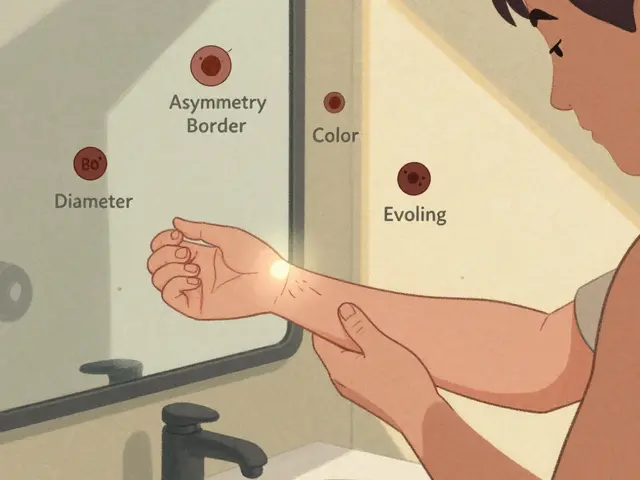Understanding the Link Between Stress and Heart Rhythm Disorders
As we go about our daily lives, stress can be an unwelcome companion that accompanies us on our journey. What many people may not realize, however, is that stress can have a significant impact on our heart health, specifically in relation to heart rhythm disorders. In this article, we will explore the connection between stress and heart rhythm disorders, and discuss various ways to manage stress for better heart health.
How Stress Affects the Heart
Stress can manifest in different ways and affect our bodies in a variety of manners. When we experience stress, our body releases stress hormones such as cortisol and adrenaline. These hormones can cause an increase in heart rate and blood pressure, potentially leading to heart rhythm disorders. Additionally, stress can cause inflammation, which has also been linked to an increased risk of heart disease.
Chronic stress, in particular, can be especially harmful to our heart health. Over time, the constant release of stress hormones can cause damage to our blood vessels and heart, increasing the risk of heart rhythm disorders and other heart-related issues.
The Relationship Between Stress and Heart Rhythm Disorders
Heart rhythm disorders, also known as arrhythmias, occur when the electrical signals that control the heartbeat become irregular, causing the heart to beat too fast, too slow, or irregularly. While there are many potential causes of heart rhythm disorders, stress is considered a significant contributing factor.
When our body is under stress, it can cause changes in the nervous system that can lead to irregular heartbeats. Additionally, stress can cause imbalances in the levels of certain ions, such as calcium and potassium, which are essential for maintaining a regular heartbeat.
Types of Heart Rhythm Disorders Linked to Stress
There are several types of heart rhythm disorders that have been linked to stress, including:
- Atrial fibrillation: A common type of arrhythmia characterized by a rapid, irregular heartbeat.
- Premature ventricular contractions (PVCs): Extra heartbeats that can cause a feeling of a skipped beat or a flutter in the chest.
- Tachycardia: A rapid heart rate, often triggered by stress or anxiety.
It's important to note that not every individual who experiences stress will develop a heart rhythm disorder. However, those with a history of heart disease or other risk factors may be more susceptible to developing an arrhythmia in response to stress.
Recognizing the Symptoms of Heart Rhythm Disorders
It's essential to be aware of the signs and symptoms of heart rhythm disorders, as early detection can lead to more effective treatment and management. Some common symptoms include:
- Palpitations: A sensation of a racing, fluttering, or irregular heartbeat.
- Dizziness or lightheadedness
- Shortness of breath
- Chest pain or discomfort
- Fainting or near-fainting
If you experience any of these symptoms, particularly if they occur during times of stress, it's important to consult with a healthcare professional for a proper evaluation and diagnosis.
Managing Stress for Better Heart Health
While it's impossible to eliminate stress completely, there are steps we can take to manage stress and reduce its impact on our heart health. Some effective strategies for managing stress include:
- Regular physical activity: Exercise has been proven to help reduce stress and improve overall heart health. Aim for at least 150 minutes of moderate-intensity exercise per week.
- Mindfulness practices: Techniques such as meditation, deep breathing, and progressive muscle relaxation can help to calm the mind and reduce stress.
- Sleep: Prioritize getting enough sleep, as a lack of sleep can contribute to increased stress levels.
- Healthy diet: Eating a balanced diet rich in fruits, vegetables, whole grains, lean proteins, and healthy fats can help to support overall health and reduce stress.
- Seek support: Reach out to friends, family, or a mental health professional for support in managing stress.
By taking steps to manage stress, we can help to reduce our risk of developing heart rhythm disorders and improve our overall heart health.
Conclusion
Stress is an unavoidable part of life, but it's important to recognize its potential impact on our heart health. By understanding the connection between stress and heart rhythm disorders, we can take steps to manage stress more effectively, reduce our risk of developing arrhythmias, and protect our overall heart health. Remember, it's essential to consult with a healthcare professional if you're concerned about your heart health or experience symptoms of heart rhythm disorders.








20 comments
Gurupriya Dutta
I've noticed my heart skips a beat when I'm overwhelmed at work. It's scary, but I never connected it to stress until now. Thanks for laying this out clearly.
My mom had AFib, and her doctor said stress was a big trigger. She started yoga and now she's way calmer.
Melissa Thompson
This article is so... amateurish. Did you even read the 2023 AHA guidelines? Stress doesn't cause arrhythmias-it exacerbates pre-existing electrophysiological vulnerabilities. And you didn't mention sodium-potassium ATPase dysfunction! Pathetic.
Rika Nokashi
You know, in India, we’ve always known this-stress is the silent killer, and the heart pays the price, not just the mind. People ignore it until they drop dead at a wedding or during Diwali shopping. The modern world is built on stress, and we’re just conditioned to suffer silently. No wonder so many young professionals have PVCs now-burnout isn’t a buzzword, it’s a diagnosis.
And yet, no one talks about how corporate culture forces you into this spiral. You’re expected to be productive, present, and perfect-all while your cortisol is through the roof. What’s the solution? Meditation? Please. You need systemic change, not breathing exercises.
Don Moore
This is an excellent overview. The physiological link between sympathetic overdrive and cardiac arrhythmias is well-documented in peer-reviewed literature. I recommend patients incorporate daily breathwork and structured sleep hygiene as non-pharmacological interventions. Consistency matters more than intensity.
Austin Levine
Makes sense. I used to get palpitations during deadlines. Cut out caffeine, started walking. Gone in a week.
Andrea Swick
I think the real issue isn't just stress-it's how we've normalized it. We wear burnout like a badge. We brag about sleeping 4 hours. We think 'hustle' is a virtue. But the body doesn't care about your LinkedIn posts. It just keeps beating until it can't anymore.
Maybe we need to stop glorifying overwork and start honoring rest. Not as a luxury, but as a biological necessity.
Amelia Wigton
The vagal tone modulation in response to chronic cortisol elevation is a critical factor in the pathogenesis of atrial fibrillation, particularly in individuals with subclinical autonomic dysregulation-yet this is entirely omitted from your analysis. Furthermore, the role of IL-6 and TNF-alpha in promoting fibrotic remodeling of the atrial myocardium is well-established in the Journal of the American College of Cardiology, 2022.
Joe Puleo
Honestly? I was terrified after my first PVC episode. Thought I was dying. Turned out I was working 80-hour weeks, drinking 5 coffees a day, and sleeping on the couch. Changed one thing at a time-cut coffee, walked after dinner, turned off screens at 10. No meds. No panic. Just… breathing.
You don’t need to fix everything at once. Just start somewhere.
Keith Bloom
Stress my ass. Big Pharma and the cardiologists are just trying to sell you beta blockers. You think your heart is acting up because of your boss? Nah. It's the glyphosate in your food, the EMFs from your phone, and the fluoride in the water. I’ve been off all meds since 2019 and my rhythm is perfect. Just eat raw garlic and sleep in a Faraday cage. Works for me.
Ben Jackson
I’m a paramedic. Seen too many 35-year-olds come in with AFib because they’re running on caffeine, nicotine, and anxiety. They’re not ‘stressed’-they’re running on fumes. The fix? Not more apps. More sleep. Less scrolling. More real human connection.
Bhanu pratap
Bro, I used to have panic attacks so bad I thought my heart was exploding. Then I started meditating for 10 minutes every morning. Not because I’m spiritual. Because I’m not ready to die at 32. Now I run marathons. Stress didn’t disappear. I just stopped letting it own me. You got this.
Meredith Poley
Oh wow. Another article telling people to ‘meditate and breathe’ like that’s the magic bullet. Meanwhile, the real problem is capitalism, wage slavery, and the fact that no one gets paid enough to afford therapy, healthy food, or a decent night’s sleep. But sure, let’s blame your irregular heartbeat on not doing enough yoga.
Mathias Matengu Mabuta
This article is a textbook example of medical reductionism. Arrhythmias are not caused by ‘stress’-they are manifestations of a deeper systemic failure of neuroendocrine regulation, compounded by environmental toxins, circadian disruption, and epigenetic dysregulation. The suggestion that ‘exercise and diet’ are sufficient interventions is dangerously simplistic. One must consider the role of mitochondrial dysfunction and oxidative stress in cardiac myocytes, which are entirely absent from this narrative.
Ikenga Uzoamaka
I had this problem after my husband left me... I was crying every night, couldn't eat, couldn't sleep... then one day my heart just started jumping like a rabbit! I went to hospital, they said it was stress-induced. I didn't believe it. But now I know. God didn't give me a weak heart. He gave me a heart that feels too much. And that's okay.
Lee Lee
You know what they don’t tell you? The government and pharmaceutical companies are using stress-induced arrhythmias as a covert population control mechanism. The 5G towers? They resonate at the exact frequency that destabilizes cardiac pacemaker cells. They want you anxious, overworked, and medicated. Wake up. The rhythm isn’t irregular-it’s being manipulated.
John Greenfield
You’re all missing the point. Stress doesn’t cause arrhythmias. People with arrhythmias are just weak. I’ve worked 100-hour weeks for 20 years. Never had a flutter. If your heart can’t handle pressure, maybe you’re not cut out for real life.
Dr. Alistair D.B. Cook
I’ve got a question-wait, no, I’m not asking. I’m just saying: if you’re not measuring your HRV daily with a WHOOP or Oura ring, you’re basically flying blind. And if you’re not tracking your cortisol spikes via saliva tests, you’re just guessing. This article is for amateurs. Real people use data. Not vibes.
Ashley Tucker
I’m sorry, but this feels like a corporate wellness pamphlet. You think meditation will fix systemic burnout? In America, we don’t have time to breathe-we have deadlines. And if your heart gives out because you’re too busy to sleep? That’s just the price of the American dream.
Allen Jones
I’ve been tracking my heart rhythm for 3 years with a KardiaMobile. Every time I see a spike, it’s always after I watch the news. I’m convinced the media is broadcasting subliminal stress signals. The anchors’ voices are tuned to 40Hz-exactly the frequency that triggers atrial fibrillation in susceptible individuals. I’ve stopped watching TV. My heart is calmer. They don’t want you to know this.
jackie cote
Consistent sleep hygiene and structured physical activity are the most evidence-based interventions for reducing stress-induced arrhythmias. Prioritize these before seeking pharmacological options.